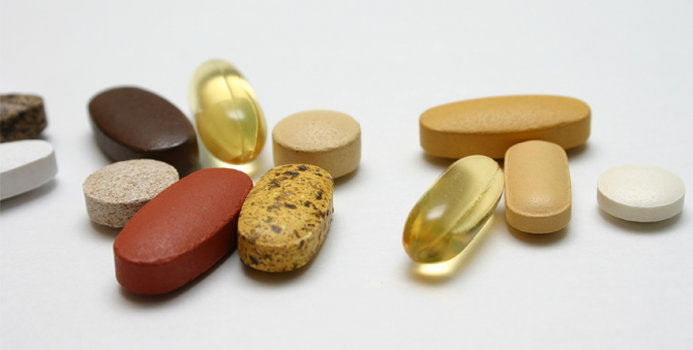Zinc is an important mineral most people do not get enough of everyday. Taking a good zinc supplement is a good way to prevent a condition called zinc deficiency. Zinc deficiency, if not treated, can often result in slowing wound repair, limiting brain function, hair loss, diarrhea and skin lesions. If you are not getting enough zinc in your diet, taking a good zinc supplement is in order, especially since your body cannot produce zinc on its own.
Zinc Food Sources
Zinc is a mineral that comes in many food sources, including fortified breakfast cereals, seafood, red meats, whole grains and brewer's yeast. If you are unable to maintain a good balanced diet to include some of these items, it is essential to take a good zinc supplement to maintain good health.
If you already take a good multivitamin daily, it may be unnecessary for you to take a zinc supplement; too much zinc can be just as dangerous as not getting enough, therefore it is advised for you to talk with your health care provider. Have the proper test run to determine what, if any, zinc supplements you should be taking.
Types of Zinc Supplements
There are several types of zinc supplements, some better than others, that can be purchased most anywhere. Some types of zinc supplements include:
- zinc sulfate (which can cause stomach irritation)
- amino acid chelates of zinc (which may be a little expensive)
- zinc gluconate (which is a good type)
- topical zinc (used for some mild skin conditions and cold sores)
- zinc oxide (used in some sun block preparations and some creams)
Some types of zinc that are best absorbed include:
- zinc citrate
- zinc acetate
- zinc picolinate
Do not take oral zinc with foods that deter absorption like bran, protein, coffee, phytates, phosphorus or calcium. As with all vitamin and mineral supplements, store in a cool dry place away from direct sunlight and away from children.
Side Effects of Zinc Supplements
What type zinc supplement you should use depends greatly on what you are using it for; your doctor will be able to help you with this, as there are some serious side effects caused by too much zinc. Some of these side effects include:
- abdominal pain
- nausea
- fever
- cough
- diarrhea
- drowsiness
- vomiting
- restlessness
If you have taken more than 100 mg per day, the result may be anemia, heart problems, immune insufficiency, copper deficiency and a decrease in HDL or good cholesterol. Another side effect may include stomach irritation, but not if taken with food.
People who have certain diseases or illnesses need to seek the advice of their health care provider if you feel you have a zinc deficiency or with any other health issues. Not everyone knows about the importance of zinc or that zinc is not stored in our bodies. Zinc is best absorbed with a good nutritional diet. Be sure to stay within the recommended daily limits for your age and gender.



